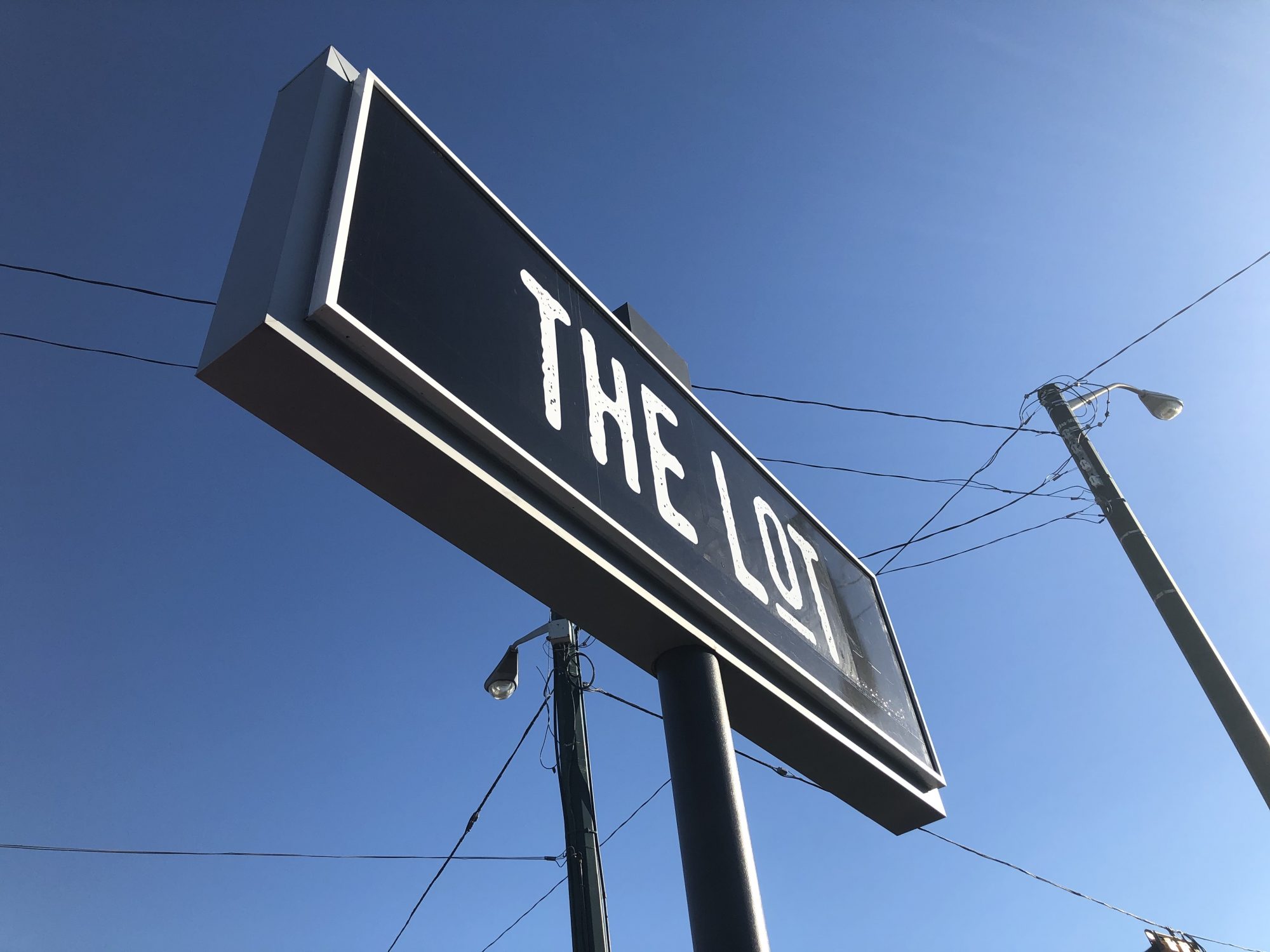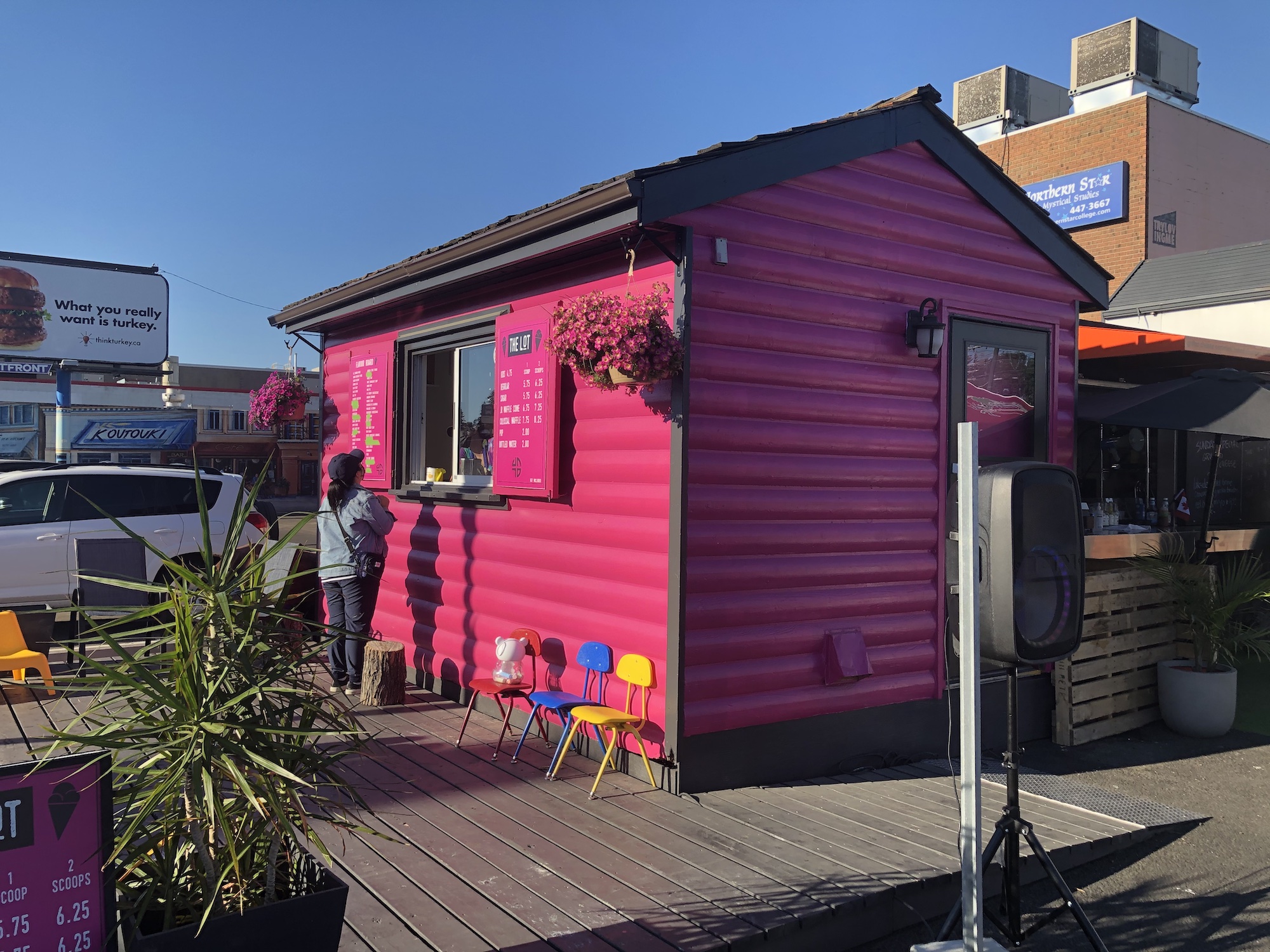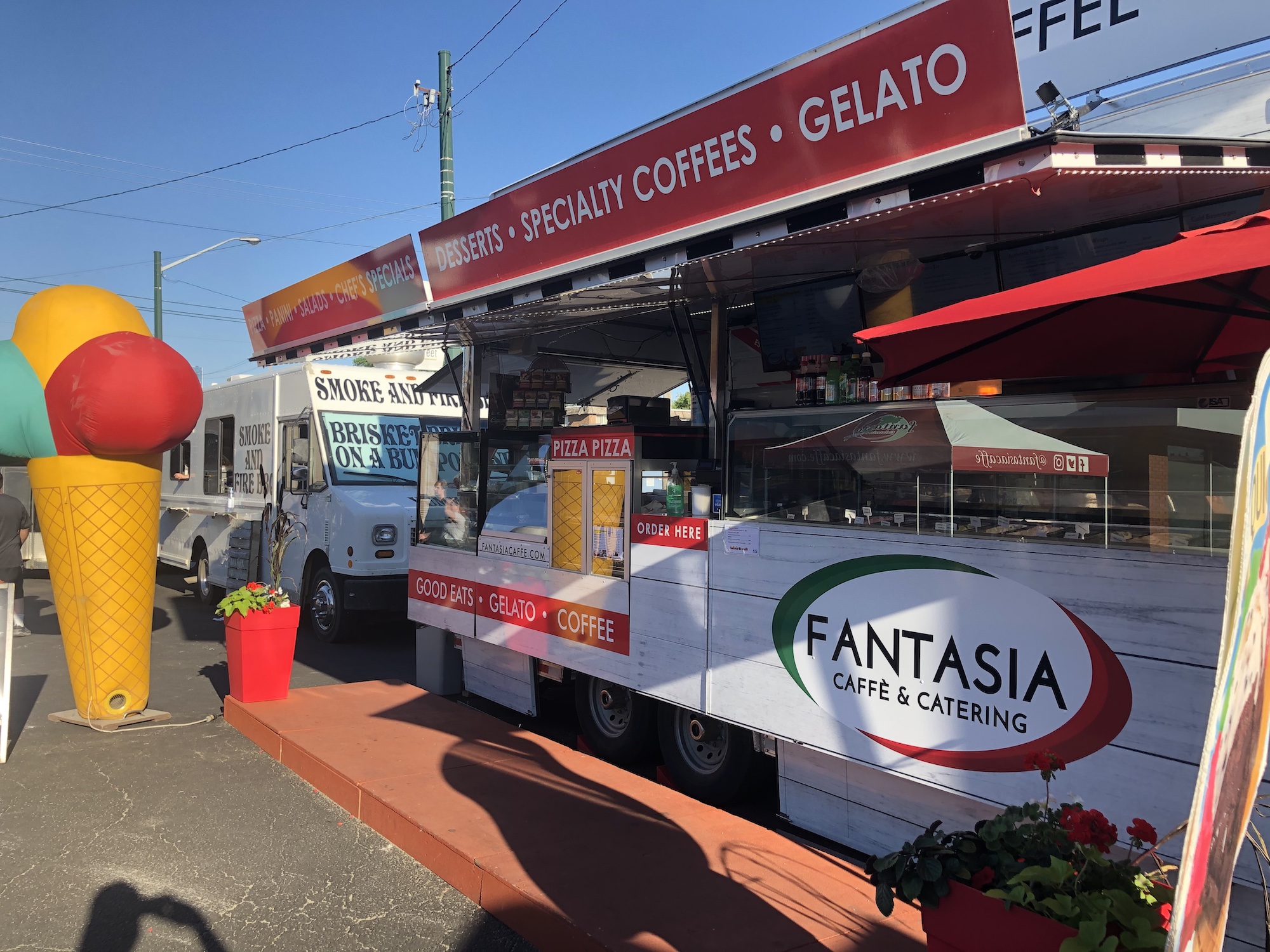
You can tell a lot about someone’s outlook on their city by how — and if — that person reacts to the sight of a vacant lot.
For most of us, our reaction to an empty lot on a street corner isn’t much of one at all. Plots of land are sometimes empty, and when you’re stuck in bumper-to-bumper traffic, desperately negotiating with Google Maps to find an escape route, an unexpected gap along a busy strip isn’t likely to raise any alarm bells.
But for others — and by “others” I mean politicians, developers, business owners and anyone else whose livelihood might be tied to the fortunes of the city as a whole — a vacant lot can be a kind of city-builder’s Rorschach test, a reflection of the city’s unexplored potential or its dwindling investment. If your city isn’t growing, then it must be shrinking, and a vacant lot can say both of those things with nothing but some exposed concrete and a few overgrown weeds.
Within a few minutes of meeting Hon Leong, it’s clear that he fits into the latter category.
A chartered accountant by training but a developer by trade, Edmontonians were recently introduced to Leong in a CTV profile of The Lot, a new food-truck popup that is generating quite the buzz along 124th Street. The interview is less than a minute long, and in it, Leong speaks to the camera while standing in front of a bright pink ice cream shack on one of the corners of The Lot. You can see the sweat on Leong’s face as he stands in the mid-June heat and, when he talks to me over Zoom, he tells me just how quickly it all came together.
“I wasn’t ready,” Leong says. “I was just wearing some Hawaiian shirt under the sun. I’m like a few shades darker. You know your forehead is just glistening with sweat. [But CTV] wanted to do it and I was like, I have to do it. The time is now. I can’t wait just to make myself look pretty.” Fortunately for Leong, his instincts were proven right, and within days of that 40-second feature hitting air, The Lot was teeming with visitors eager to check out 124th Street’s latest phenomenon.

Like the name implies, The Lot sits on what used to be a vacant lot. I use the phrase “used to” a bit liberally because when you actually visit the site, it still looks a lot like a vacant lot. Sitting in the back corner along the adjacent alleyway is a large, industrial-sized garbage bin, and although Leong paid for resurfacing before launching the popup, the cracked concrete on the property’s edges still bears the marks of years of disrepair. The only obvious signs of occupation are the rich black tarmac, the aforementioned pink ice cream shack, a few food trucks and a tall spinning billboard announcing “The Lot” in white block letters. But, despite the minimalist setup, it doesn’t stop Leong from calling the property his “Disneyland.”
“This is sexy and fun,” Leong tells me at our second meeting, the two of us standing beside an eye-catching red and white Shasta trailer that doubles as his on-site office at The Lot. “The reason why I bought this lot was because I was so tired of the difficulties I had on Plaza 66. So I said, I need a break. I need to do something easy.” The difficulties Leong is referring to are the ones he encountered on Fort Road as the owner of the Plaza 66 shopping centre. Having first bought that property in 2010 as the head of his family’s development company, Leong invested millions in the plaza over a period of about 10 years. Leong also became a board member on the Fort Road and Area Business Association during that time, a role which saw him transform into a leading voice in the effort to revitalize one of Edmonton’s most troubled postal codes. “It took me a long, long time to develop that corner,” Leong says, comparing his experience on Fort Road to a fisherman casting a net in hopes of a catch. “Some streams are faster and you catch the fish quicker. Some are slower, and that one was a very slow project.”
But further south on 124th Street, Leong has seen success come a little more readily than before. Just a few weeks after launching in late May, The Lot is already attracting regular lunchtime traffic and weekend crowds that can number in the hundreds. Leong also has plans to expand from the current model of four anchor food trucks (Smoke and Fire BBQ, Dick’s Tater Ship, Coffee Stat, and, BF Korean Chicken), the ice cream shack and a rotating list of feature trucks to include popup markets, live music, fitness classes and special events. “The food is the initial draw, but then you need to supplement it with retail,” he says. “People like to hang out afterwards, [so] give them a reason to walk around. The events are the cherry on top.”

The plan may seem ambitious, but it’s all in keeping with Leong’s initial vision for the property. When he first purchased the lot in 2019, it was with an eye on converting it to a multipurpose food hub simply called FARM. The renderings Leong sends me of FARM show five towering steel Quonset huts sitting across from familiar 124th Street landmarks, each of them bookended with large floor-to-ceiling windows. There are also 3-D models of hip urbanites in and around the huts, drinking at bars, eating at cafes, gazing up at gallery walls and lounging in hidden courtyards. Leong asked that the renderings be kept confidential for now, but he is not shy about his intentions to use The Lot as a launchpad for something much bigger. “One of the quotes that CTV jumped on was that I’m not building the pond and then bringing the fish. We’re going to bring the fish here and then build the pond,” he says, motioning to the popup that looked destined to become a parking lot just four weeks prior. “This is going to be here indefinitely … but sooner or later we will build it.”
Although the plans for FARM were torpedoed by the pandemic, the steady flow of visitors to The Lot would suggest the pivot towards a Portland-style food truck popup was a popular one. Even more surprising, though, is the reception from nearby restaurants, which have been largely optimistic about the influx of food trucks. “The more the better,” says Seble Isaac, owner of Tiramisu Bistro and secretary for the 124 Street Business Association. “It just brings different kinds of traffic. People who’ve gone there have come back here [to Tiramisu]. Either they come to the restaurant or to the market, or they come here and then go down there for ice cream.” Those sentiments were also shared by Paul Shufelt, owner of neighbouring burger joint Woodshed Burgers. “Initially you get a little bit defensive as a small business owner, but in the grand scheme of things, I think it’s part of the community improvement of 124th Street,” Shufelt says. “The more competition that comes, the more people are aware of what offerings there are. I think there’s enough room for all of us to do well.”
One voice that isn’t quite as enthusiastic about the arrival of The Lot though belongs to Kirsta Franke, founder and market director for 124 Grand Market. After living and working on 124 Street for over a decade, Franke isn’t sure that a permanent food truck popup is the best fit for what is already a congested food street.
“When you look at a critical mass of food trucks on the street, I think the question is, is this good for the community long-term?” Franke says. “I do worry about a multi-day food truck popup, what that does to the brick-and-mortar restaurants in the area, as well as how it might affect food vendors at our marketplace.” Franke also emphasizes that despite hosting food trucks at her own bi-weekly farmers market, her concerns about The Lot primarily stem from her concern for the larger 124 Street community. “We’re hoping that [Leong] continues to evolve the concept in a way that is mirroring the community and what the community needs, and not competing with the community that’s already established on the streets.”
Both Franke and Leong acknowledge the lack of communication between their neighbouring popups. “We do not have a working relationship,” Leong tells me. “If you can imagine, [The Lot] could easily be a food court for people to go shopping [at 124 Grand Market] and come here. But we don’t have that relationship.” Franke says that she is open to the idea of the two markets coexisting and possibly even collaborating in the future, but she admits that that it is not the current trajectory of their relationship. Leong does not dismiss the idea either, but he also mentions that he feels The Lot’s permanence allows it to fill a need not currently being met by 124 Grand Market. “The Grand Market has been there for 10 years, they say,” Leong says. “When you add it up, it’s 200 days. In my one year here, I will have provided more contributions and more equity into this community than that market will have over 10 years. So imagine now me doing that for 15 years.”
It’s an open question as to what The Lot will look like in 15 years, let alone in 15 weeks once temperatures drop and the annual food truck season draws to a close. For now, The Lot is a symbol of one battle-weary developer’s push to become the centrepiece of an up-and-coming food street, but also our wider fascination with aggressive urban development. Despite vacant lots’ ability to hide in plain sight, there is no denying that they can often be a source of uneasiness in communities characterized by narrowly defined zoning bylaws, rigid status quos and limited possibilities. The relief of seeing those spaces occupied tends to be rooted in concerns about criminal activity and surrounding property values, but that should be tied to the awareness that what resembles development in one community can manifest itself as gentrification in another, and the recognition that vacant lots are not always uninhabited. Our eagerness to do anything but let a plot of land sit undeveloped is also coloured by the irony that, as Robert Pyle points out in his essay, Eden in a Vacant Lot, many of us likely played in vacant lots at one point or another during our childhoods.
If you scroll through The Lot’s website, you will notice a caption on the homepage that describes the popup as, “A paved paradise for food trucks, carts and trailers.” The same slogan also appears in the bio for The Lot’s Instagram page. Leong mentions the phrase again as we talk outside his trailer on a slow weekday afternoon, but this time his voice takes on a newfound intensity. “The reason why I called it The Lot is ironic,” he says. “You know the Joni Mitchell song, right? ‘They paved paradise and put up a parking lot.’ [The Lot] is ironic because I’m taking what is just a parking lot and I’m now giving it back to the people.” The added irony of quoting Mitchell’s 1970 protest anthem at a commercial popup isn’t lost on me, but listening to Leong, it’s clear that he means every word. After running the gauntlet on Fort Road, the creation of The Lot is about a lot more than just occupying the corner of 124th Street and 107th Avenue. In just a few short weeks, he has already laid the foundations of what he fully expects will become a paved open-air paradise. Whether the community on 124 Street decides to follow along remains to be seen, but for now, one thing is clear: As far as Hon Leong is concerned, The Lot is just the beginning.








